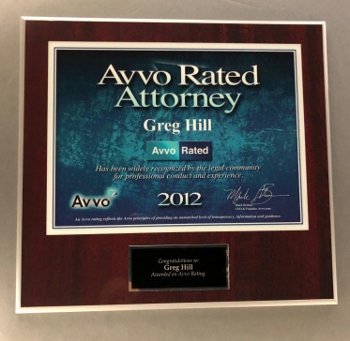In 2004, Redondo Beach resident Stephen Shoemaker was convicted of eight misdemeanor counts of possession of child pornography, in violation of Penal Code § 311.11, and one count of duplicating child pornography in violation of Penal Code § 311.3.
Synopsis: Appellate court denies equal protection challenge of lifetime sex offender registration requirement for possession of child pornography.
The charges followed a 1998 search warrant and search by Redondo Beach Police of one of his prominent business addresses. He and his office manager were charged with over two dozen counts involving child pornography, but the trial court in Torrance dismissed eight of the possession counts and the one count charging Shoemaker with distributing or publishing obscene matter.
Shoemaker was placed on formal probation for thirty-six months, conditioned upon his serving ninety days in county jail and completing a one-year sexual compulsiveness counseling program. He was also fined $17,000 and ordered to register for life as a sexual offender under Penal Code § 290.
 Redondo Beach PD Patch
Redondo Beach PD Patch
On June 30, 2011, Shoemaker filed a civil action in the Los Angeles Superior Court, under 28 U.S.C. § 1983, alleging that the mandatory sex-offender registration requirement of Penal Code § 290 denied him equal protection of the laws under the federal and state constitutions. In other words, Shoemaker alleged that subjecting him, as a person convicted of violating Penal Code § 311.11, to a lifetime of registering as a convicted sex offender was unfair because there was seemingly far more serious sex crimes that did not require registration.
Such crimes that did not include mandatory sex offender registration included:
A. Knowingly distributing or exhibiting “harmful matter” to a minor (Penal Code § 313.1) (harmful matter is that which “appeals to the prurient interest” by depicting patently offensive sexual conduct which lacks serious “literary, artistic, political or scientific value”);
B. A first offense of knowingly distributing “harmful matter” to a minor intending to arouse the minor for the purpose of seducing the minor (Penal Code § 288.2);
C. Sexual intercourse with a minor who is not the perpetrator’s spouse (“statutory rape,” Penal Code § 261.5);
D. Engaging in degrading, lewd, immoral or vicious habits or practices in degrading, lewd, immoral or vicious habits or practices in the presence of a child (Penal Code § 273g);
E. Oral copulation with a minor (Penal Code § 288a); and
F. Knowingly procuring a minor for an obscene, indecent or immoral purpose (Labor Code § 1308(a)(3)), which requires proof that defendant had care and custody of a minor and “encouraged the minor to engage in an obscene, indecent or immoral purpose, exhibition, or purpose.”

Shoemaker argued that his offense was less egregious than the above seven offenses, which involved actual exploitation and victimization of a child. Shoemaker’s conviction only involved the private possession or duplication of images. They did not involve any interaction with a minor.
Shoemaker, in addressing the requirements to prove a violation of the equal protection clause of the state and federal constitutions, argued that there was no rational basis for the classification of his conviction as registrable and the classification of the above sex offenses as not mandatorily registrable. Therefore, as he claimed an ongoing harm to his reputation by being a registered sex offender, there was a constitutional violation and the court needed to remove his future obligation to register as a sex offender.
In ruling on Shoemaker’s civil action, the trial court transferred the case to a criminal trial court where it was construed as a writ of habeas corpus and denied.
Shoemaker then appealed to the Second Appellate District. The Second Appellate District then affirmed the trial court (Stephen Shoemaker v. Kamala Harris (2013 DJDAR 4077)), reasoning that a comparison of which offenses deserve greater punishment, as Shoemaker argued, really was not determinative or meaningful. Instead, the issue was whether Shoemaker’s crime was a continuing exploitation and victimization of the images’ subjects. Using this criteria, the Appeals Court ruled that Shoemaker’s crime correctly required 290 registration because it was a continuing harm. Thus, the appeals court affirmed the trial court’s ruling.
The citation for the Second Appellate District Court of Appeals ruling discussed above is Stephen Shoemaker v. Kamala Harris (2d App. Dist, 2013) 214 Cal.App.4th 1210.
For more information about sex offender registration issues, click on the following articles:
- What Are the Defenses to Possession of Child Pornography (Penal Code § 311)?
- Co-Owner of Computer Can Validly Consent to Search of Computer Revealing Child Pornography
- Court Decides California Sex Offender Law Is Unconstitutional by Barring Those Convicted of Misconduct with Persons under 14 from Relief from PC 290 Registration
Contact Greg Hill & Associates
 Redondo Beach PD Patch
Redondo Beach PD Patch